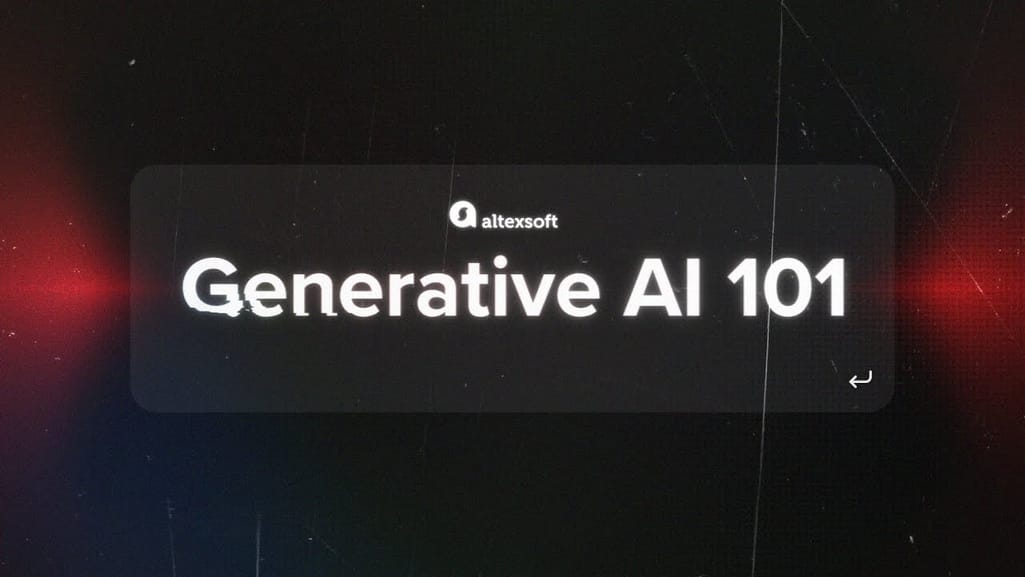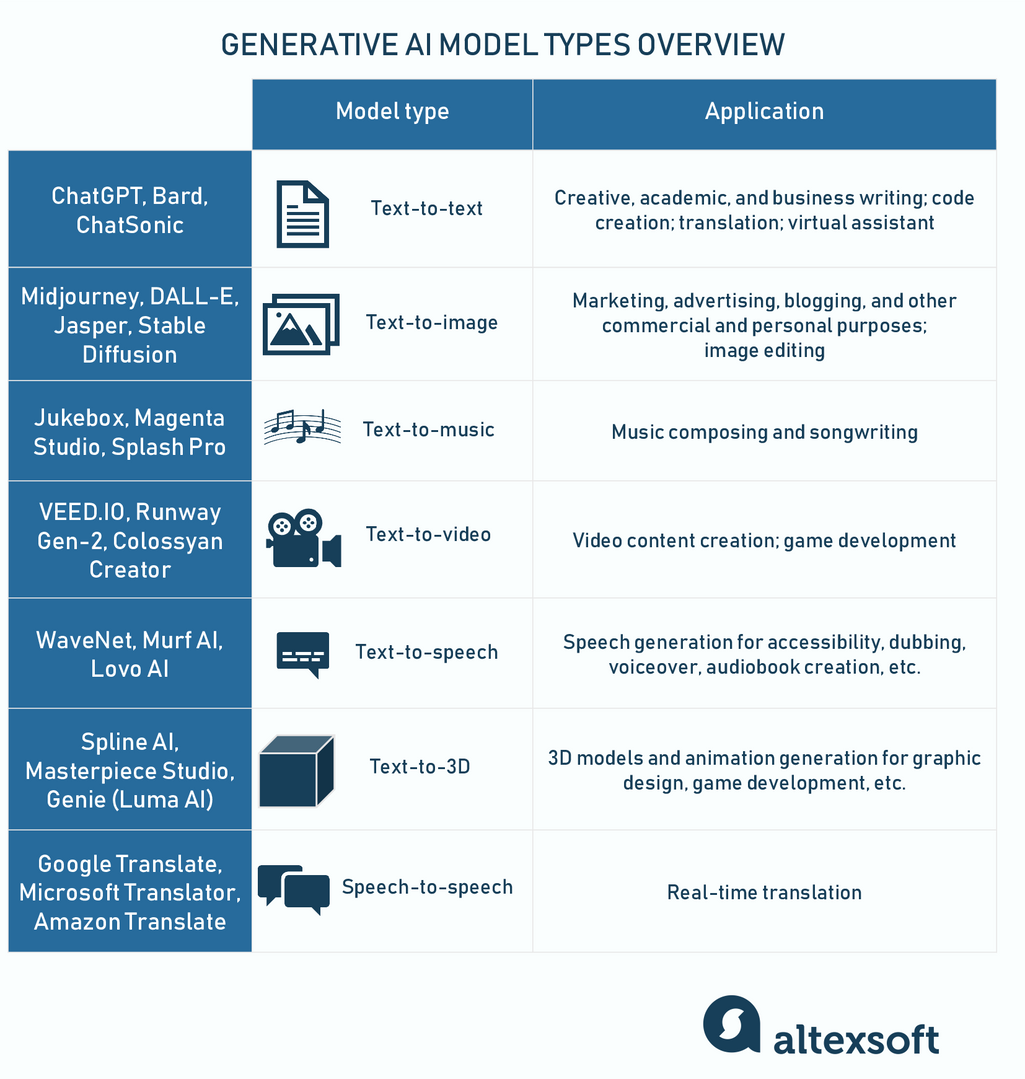writing a really great prompt for a chatbot persona is an amazingly high-leverage skill and an early example of programming in a little bit of natural language
Today, companies are ready to shell out $300k+ to a skilled prompt engineer – a role that didn’t even exist a few years ago. However, in the evolving landscape of generative AI tools, this specialization quickly became pivotal.
This article delves into the nuances of this emerging profession, highlighting its significance, the responsibilities implied, and the skills required to excel in the field of prompt engineering. This post will be useful for people who are exploring a new profession, HR recruiters who develop job descriptions and evaluate candidates, and business managers who are considering hiring a prompt engineer.
What is a prompt engineer?
A prompt engineer is a specialist who crafts and fine-tunes text-based questions or instructions (known as prompts) that are given to generative artificial intelligence (AI) models such as ChatGPT, Midjourney, Bard, DALL-E, and others. But let’s take a quick step back and explain the key concepts here.
Generative AI models are a recent but rapidly evolving technology that can create new content (like text, images, or code) after it learns from existing textual, imagery, or other data.


Here’s a cool video explainer of how generative AI works
Generative AI has a huge range of applications, so many businesses are now learning to use the power of AI – and capitalize on it. Generative AI tools can produce artwork, write software code, analyze data, design new products, suggest ideas… The list of potential use cases is limitless.
Prompt engineering as a discipline has quickly gained importance because the way a prompt is phrased can significantly impact the quality and relevance of the AI's response. That explains the need for an expert who is able to develop optimal inputs and get the desired outputs.
Prompt engineer responsibilities
Despite the tender age of this profession, there are already multiple specializations within prompt engineering. And it only makes sense – if you run, say, a marketing business, you don’t want a specialist in creating music or writing code. Instead, you’d want to hire an expert who can make AI generate catchy slogans, craft witty social media posts, or segment customers to create targeted campaigns.
So depending on the industry and specific company needs, the responsibilities of a prompt engineer can vary, but we’ll describe the key ones that are most often required.
Designing prompts. Obviously, the main task of a prompt engineer is creating prompts that elicit accurate and relevant responses from AI models.
Testing and iterating. Since you can rarely come up with a perfect prompt from the jump, AI experts have to continuously experiment, test AI responses, and refine prompts for the best results.
Building a prompt library. As they develop successful prompts or prompt chains for various tasks, prompt engineers have to create databases of such findings, together with guides for other users.
Integrating prompts into workflows and applications. Besides using generative AI to facilitate workflows or automate repetitive tasks, prompt engineers often have to embed AI prompts into other systems.
Training and tuning AI models. In software companies, prompt engineers can be a part of a data science team that develops and implements AI/ML models. They help guide AI learning processes and improve model performance.
Additional responsibilities include
- collaboration – working with other team members (content creators, data scientists, developers, etc.) to understand requirements, look for ways to make the most out of AI models, and educate other users;
- documentation and reporting – keeping records of prompt designs, AI responses, and refinements for future reference and analysis; and
- ethical oversight – monitoring AI outputs for biases or ethical issues and adjusting prompts to mitigate these risks.
Now let’s take a look at the prompt engineer resume and discuss the essential skillset.
Prompt engineer skills
The skills of an AI prompt engineer encompass an intricate blend of technical, linguistic, analytical, and creative abilities.
Hard skills
Below are the essential hard skills that a prompt engineer must master to excel in interacting with AI models.
Proficiency with AI models and NLP. As a bridge between AI models and end users, prompt engineers must understand how AI tools “think” and process information. These specialists must have an in-depth knowledge of natural language processing (NLP) techniques and algorithms, expertise with large language models (LLMs), and an understanding of deep learning and neural networks. Their expertise lies in knowing both the capabilities and limitations of different AI tools, enabling them to guide these systems toward producing relevant, accurate, and contextually appropriate outputs.

Generative AI models overview
Knowledge of prompting techniques. Prompt engineers must know how to use various techniques such as zero-shot, role-playing, chain-of-thought, etc.
Please check our post about prompt engineering to learn more about these approaches.
Technical skills. Python is the most popular AI programming language, so at least basic coding skills are a must. Experience with TensorFlow and/or PyTorch frameworks would also be helpful.
Linguistic and communication skills. Since they “talk” to AI in natural language, prompt engineers must have a wide vocabulary and, well, have a way with words to craft effective prompts. And to ensure effective teamwork, oral communication skills will also come in handy.
Domain knowledge. As previously mentioned, many companies are looking for experts in a certain field, e.g., marketing, software development, game creation, healthcare, finance, etc. Expertise in a relevant field and knowledge of inherent terminology/issues/needs will help a prompt engineer develop the most accurate queries.
Soft skills
Soft skills are just as important for a prompt engineer as hard ones.
Creativity. The ability to generate innovative and diverse prompts allows for exploring various aspects of an AI model's capabilities.
Problem-solving skills. Prompt engineers must be able to find applications for AI and ways to optimize and innovate other workflows and systems.
Critical thinking. It’s essential to evaluate the context and purpose of a prompt to ensure it aligns with desired outcomes.
Analytical skills. To optimize and refine inputs, prompt engineers must be able to analyze the outputs.
Ethical understanding. Prompt engineers must be aware of ethical considerations and biases in AI, ensuring prompts do not lead to harmful or biased outputs.
Willingness and ability to learn. The AI world is now developing at lightning speed. So to successfully work with AI tools, prompt engineers must follow the trends and stay on the leading edge of the latest innovations.
Besides all of the above, another invaluable characteristic of a prompt engineer is patience. They have to deal with a digital smarty pants that will sometimes be too literal, other times totally misinterpret the prompt, and yet other times – dream up the response altogether. So it takes a pinch of patience and a spoonful of humor to keep coaxing the machine and stay sane 🙂

That’s quite an impressive list of diverse skills and abilities, isn’t it? Let’s see how people who want to master this profession can acquire them.
How to become a prompt engineer
The uniqueness of prompt engineering is that this field is only about two years old, so it's basically just being explored. That’s why no college or university can offer you a degree in prompt engineering. At least, for now. Still, certain backgrounds and courses can definitely be beneficial to get the position.
Prompt engineer background
A bachelor’s degree in computer science, data science, engineering, or a related field will be helpful in conquering the prompt engineering domain. A master's or PhD in AI, NLP, or a related field will also be a great plus.
Prior experience with AI tools or any role related to AI and NLP will grant a candidate another point. So will Python or R coding expertise.
On the other hand, not all prompt engineering positions require coding skills. Instead, a background in linguistics, cognitive psychology, and communication will allow for effective prompt creation.
Overall, a prompt engineer benefits from a multidisciplinary background, combining technical expertise with language proficiency, creativity, and research skills.
Prompt engineer courses, certifications, and other education options
To become a proficient prompt engineer, you can consider various educational pathways.
Broad knowledge. As we said, getting a degree in computer science or AI-related fields and mastering NLP and Python is a great starting point. If you don’t want to spend a few years in college, there are a lot of free and paid educational resources about deep learning, neural networks, NLP, and AI/ML in general, so consider self-education and online certification.
Focused courses. Today, there are plenty of targeted, narrow-focused education options designed specifically for prompt engineers. Here are just some of them:
- Certified Prompt Engineer from Blockchain Council,
- Certified Prompt Engineering Course from Promptmaster,
- Certified Prompt Engineering Expert (CPEE) from 101 Blockchains,
- Master Prompt Engineering Course from Prompt Engineering,
- Prompt Engineering for LLMs from Maven,
- Prompt Engineering Guide from Learn Prompting,
- ChatGPT Prompt Engineering for Developers from DeepLearning.AI and OpenAI, and
- an array of prompt engineering courses on Udemy or Coursera.
AI community. Another great option for learning and staying on top of the latest information is joining an expert AI community like Lennon Labs or Prompt Engineering Institute where you get access to a variety of resources like educational courses, toolkits, ready-made prompt libraries, and so on. Thematic tech forums like StackOverflow, GitHub, or Reddit also provide a worthwhile community experience.
AI leaders. Following recognized AI experts and influencers on social media, blogs, and other platforms will keep you well-informed and up to date.
See Also
Bootcamps. It’s also worth attending intensive, focused workshops or bootcamps on AI, ML, and NLP. These are often more hands-on and can provide practical experience.
Conferences and seminars. AI and technology conferences, webinars, and seminars help you stay current with the latest trends and network with professionals in the field.
When to hire a prompt engineer?
A company should consider hiring an AI prompt engineer when they want to leverage AI and NLP technologies to build, improve, or maintain AI-powered applications or systems. Here are some specific scenarios in which hiring an AI prompt engineer may be beneficial.
Developing AI-powered products or services. If your company creates products or services that involve conversational AI, chatbots, virtual assistants, recommendation engines, or any other application that relies on natural language understanding and generation, hiring an AI prompt engineer can be crucial.
Enhancing customer support and engagement. AI prompt engineers can help improve customer support by building chatbots or virtual agents that can answer common customer queries, provide support 24/7, and streamline customer interactions.
We at AltexSoft integrated ChatGPT into a client's travel platform. The system interpreted users’ queries in natural language and provided personalized trip recommendations.
Among other use cases, we also leveraged the power of ChatGPT for migrating a Node.js service to Java. Please read more about ChatGPT implementation in travel and our experience with generative AI in a dedicated overview.
Content generation and automation. If content generation or automation of routine tasks is essential to your business, an AI prompt engineer can help create systems that generate articles, reports, emails, or perform data entry and processing tasks efficiently.
Customized AI models. If your company requires customized AI models tailored to specific domains, industries, or tasks, hiring an AI prompt engineer can help fine-tune and train these models to suit your unique needs.
Research and development. AI prompt engineers can work on research and development projects to explore innovative AI applications, improve existing models, and stay updated with the latest advancements in AI and NLP.
Data-driven decision-making. As a part of a data science team, AI prompt engineers can assist in building AI systems that can analyze large datasets, extract insights, and make data-driven decisions to enhance business operations and strategy.
Scaling AI initiatives. As your company's AI initiatives grow, the demand for AI prompt engineers may increase to maintain and expand AI capabilities.
Competitive advantage. If your competitors are using AI effectively to improve their products, services, or operations, hiring an AI prompt engineer can help you remain competitive in your industry.


Watch how generative AI paves its way into different industries
All in all, we recommend you to consider your specific needs, the scope of your AI projects, and the resources available before deciding when to bring in an AI prompt engineer. Additionally, outsourcing AI prompt engineering services or partnering with AI-focused firms is another option if you don't want to hire a full-time AI engineer in-house.
Automatic prompt optimization
To wrap up, we want to point out that the career of a prompt engineer can be very short-lasting. And it’s not because you’re a bad specialist. It’s because today, AI tools are already capable of optimizing prompts themselves.
Nifty algorithms such as Microsoft's APO (Automatic Prompt Optimization) or OPRO (Optimization by PROmpting) iteratively generate different prompts, enhancing their accuracy until perfection. Gradually, this approach is being added to AI tools so it might happen that soon machines will be smart enough to ask the right questions and provide ideal answers all by themselves.
No one knows what the future holds. All we can do is try to keep up with technology advancements, so stay tuned for more updates.

